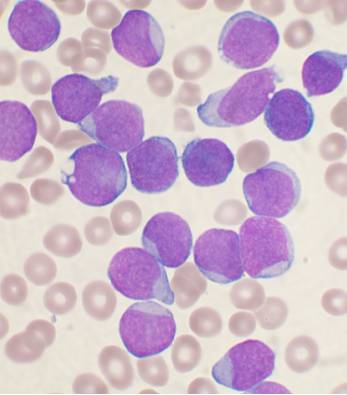The amino acid valine may yield new treatments for blood cancer patients and those in need of a bone marrow transplant

Blood cancer treatments may one day include certain nutritional restrictions: researchers have found that one of the essential amino acids for building the proteins in our body also has a crucial role in the production of blood stem cells. Scientists believe that the discovery could lead to a possible alternative to chemotherapy and radiation treatments.
Valin It is one of the ten essential amino acids: they are used as building blocks for the proteins that are essential to our lives, but the human body does not produce them by itself. The body must therefore receive it in the diet and it is found in high-protein foods such as meat, dairy products and legumes. Valin participates in metabolism and tissue repair, and now appears to also play an essential role in the formation of blood stem cells. In the article In the journal Science, researchers at the University of Tokyo and Stanford University reported that human blood stem cells do not multiply in Petri dish cultures without a supply of valine. Also, mice that are deprived of a supply of valine for two to four weeks stop producing new white and red blood cells.
Based on these results, Hiromitsu Nakauchi, one of the senior authors of the article, and his colleagues believe that a valine-free diet for blood cancer patients before a bone marrow transplant will eliminate the need for chemotherapy or radiation, two treatments that destroy the cancer-causing stem cells to make room for the transplanted cells, but carry risks. In a follow-up experiment, Nakauchi and his colleagues tested the idea in mice deprived of valine and successfully transplanted bone marrow without the need for chemotherapy or radiation. But half of the mice died of valine deficiency shortly after the four-week experiment ended.
Nakauchi says much more research is needed to determine how long humans can survive on a diet devoid of valine (which will likely be given by intravenous infusion). But if the prevention of valine also works on humans, the possibility of bone marrow transplants will open up for patients who are usually not suitable for chemotherapy or radiation, such as pregnant women or patients with low blood counts, says Linhang Lee, a stem cell biologist at the Stowers Institute for Medical Research in Kansas City, Missouri. Lee was not involved in the research, but in his opinion, in order for the treatment to be effective, it would be necessary to combine this approach with other treatments or chemotherapy and radiation treatments at a reduced dose.
And it is possible that removing valine from the diet of certain leukemia patients may eliminate the cells that caused the cancer in the first place, Nakauchi says: "If such a simple and relatively less harmful treatment could be used as a treatment for leukemia, that would be huge."
for further reading
- Depleting dietary valine permits nonmyeloablative mouse hematopoietic stem cell transplantation; Yuki Taya et al. Science, Vol. 354, Issue 6316, pp. 1152-1155; 02 Dec 2016
- Withholding amino acid depletes blood stem cells; Christopher Vaughan, Stanford Medicine News Center; 18 October 2016

One response
And by the way, one of the most difficult problems with an unbalanced vegan diet is that the vegan who does not eat a sufficiently balanced and varied diet does not get all the essential amino acids because plants do not have all these acids in the amounts needed by the body.
For example, legumes lack the acids we believed to be present in grains and vice versa, for example a vegan who also wants to avoid gluten and does not eat wheat may encounter a problem of lack of methionine, etc.